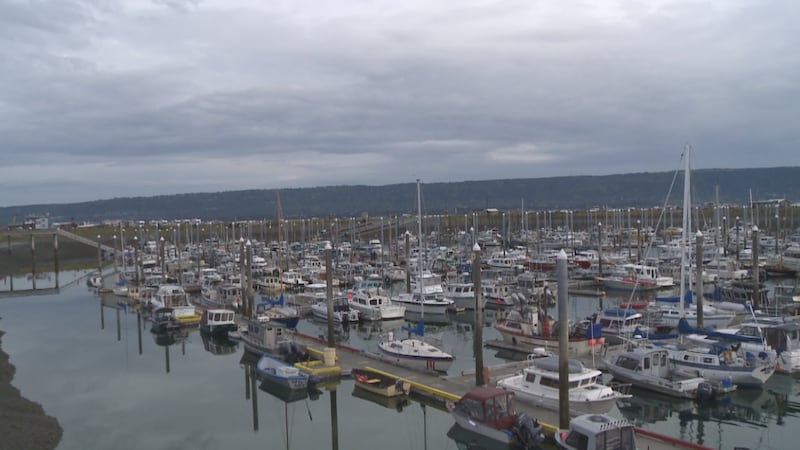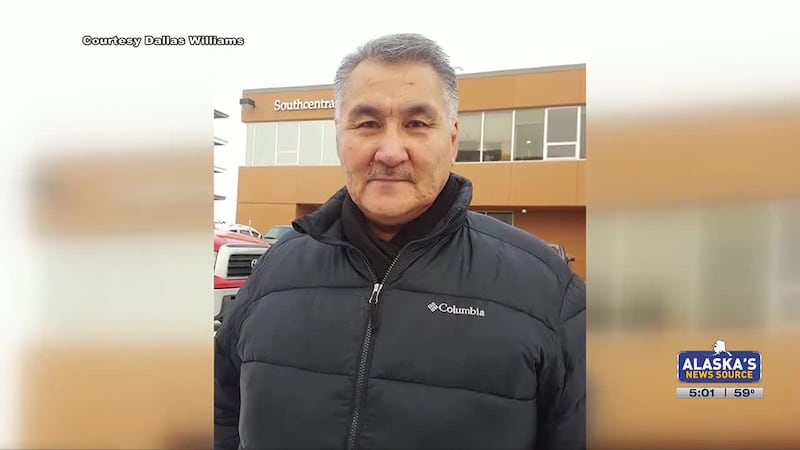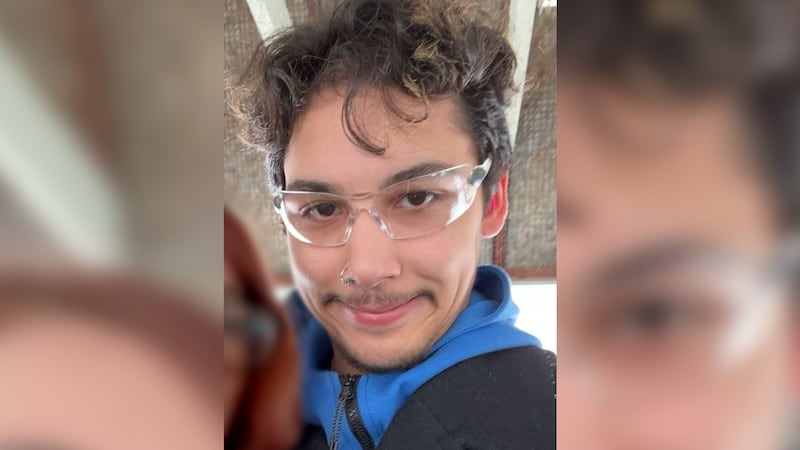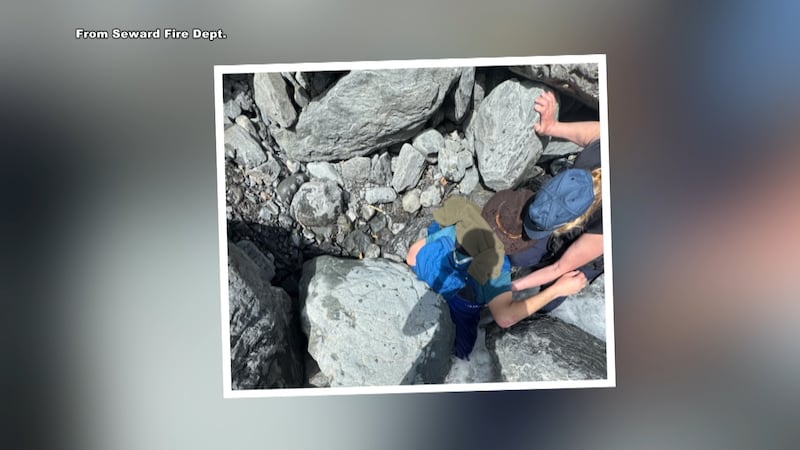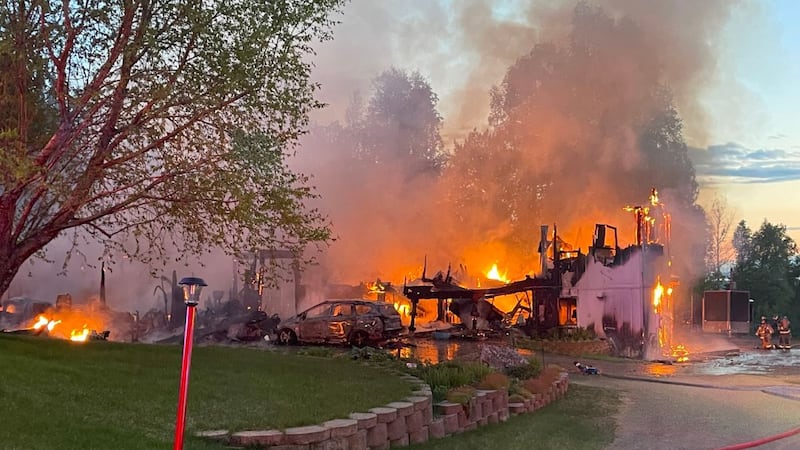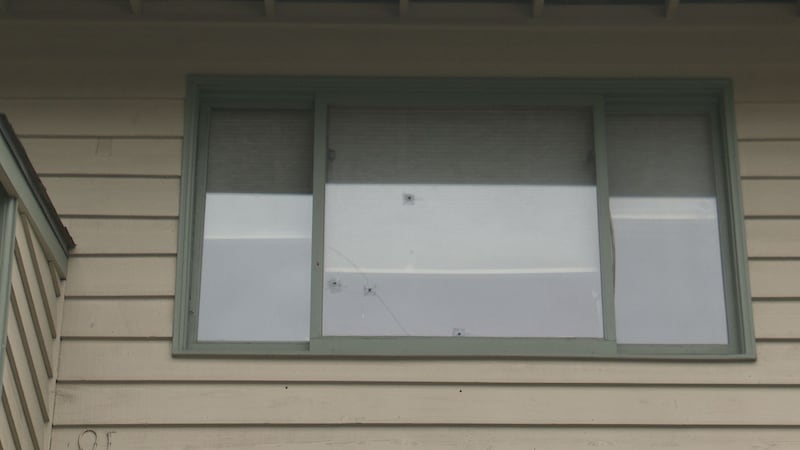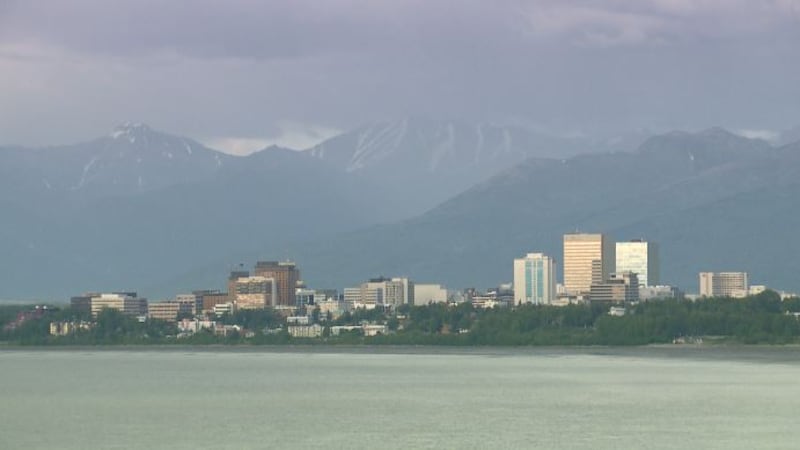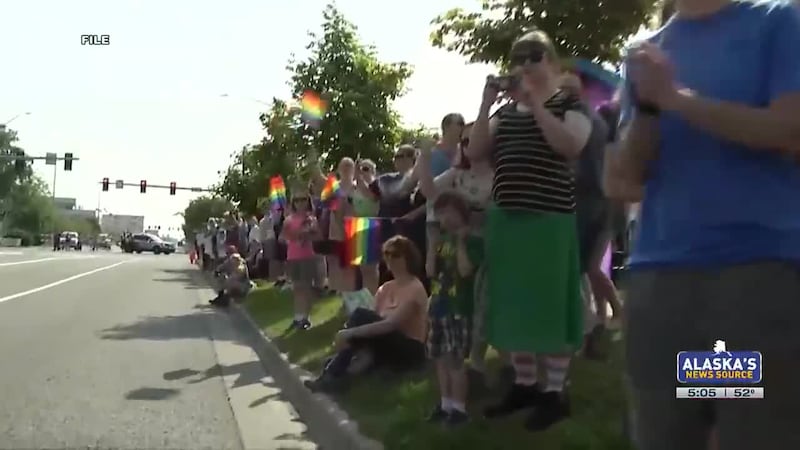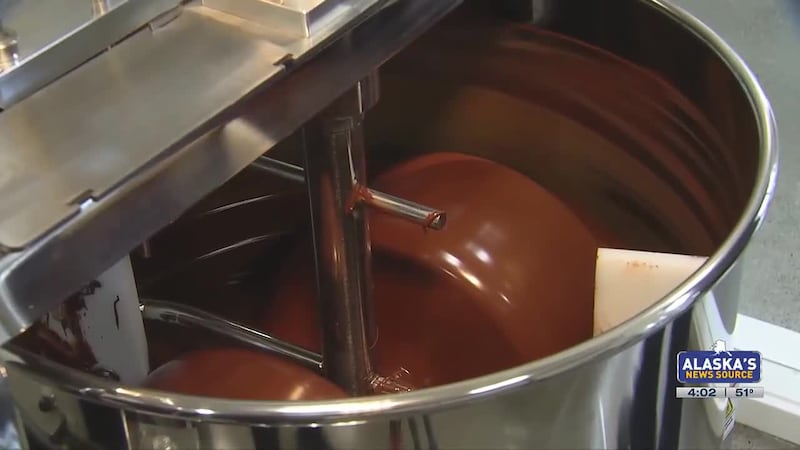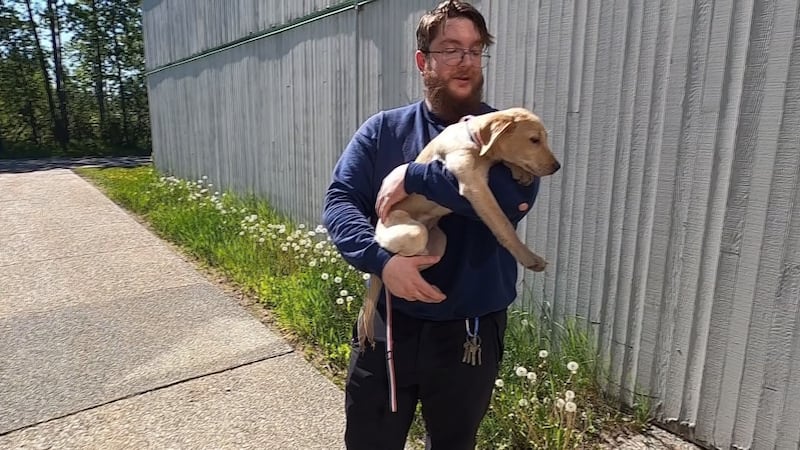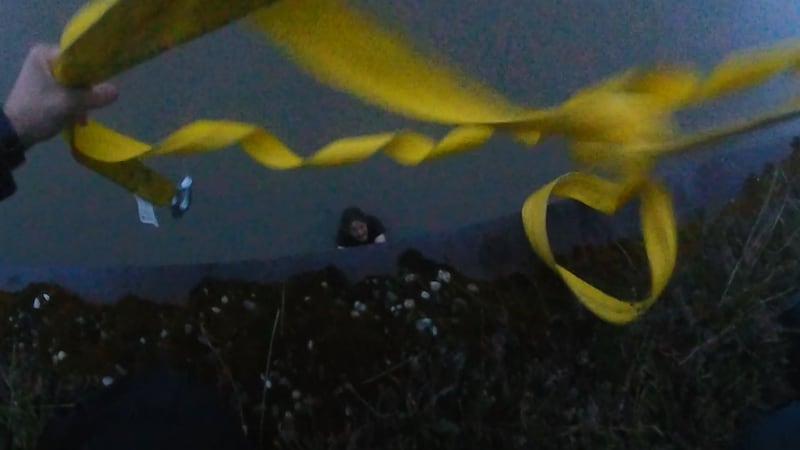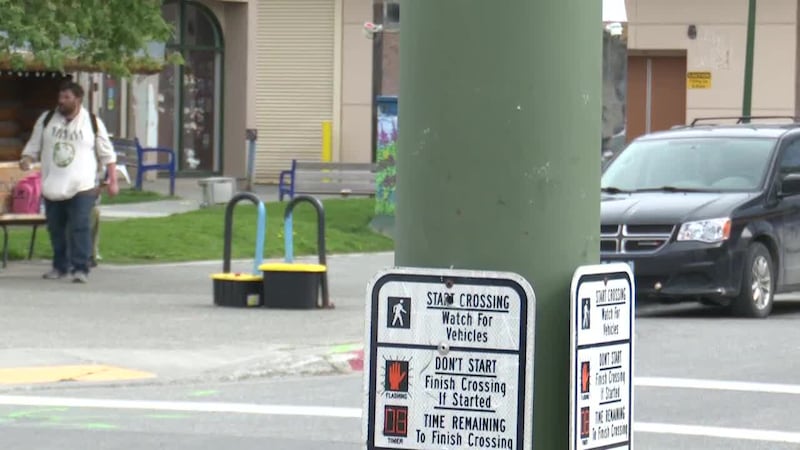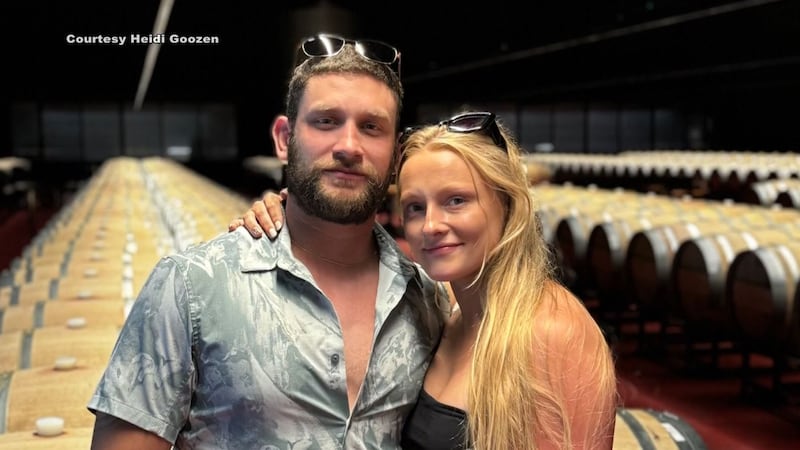Local business owner and family patriarch turns 100
ANCHORAGE, Alaska (KTUU) - Before the invention of television, sliced bread, and Mickey Mouse, Anchorage business owner Mousa Obeidi was born.
On Saturday, Obeidi officially celebrated 100 years at his birthday party, surrounded by family and friends, in person or joining digitally from around the world.
“I feel good, really,” Obeidi said with a smile at his birthday party. “Thank you. Thank all of you. You know, I feel - I feel different.”
With deep ties within the Anchorage community, Obeidi reminisced about the city he has called home for decades, though it hasn’t always been that way.
Alaska was far from where Mousa began life, in the town of Ramallah, located in the West Bank of then British-controlled Palestine.
“A Palestinian immigrant who came to the United States with nothing in his pocket no words, no literacy skills,” said Mousa’s oldest granddaughter Marvat Obeidi. “He dropped out of school early, and all he wanted to do was be committed to his family. He made the long journey to the United States.”
In the 1960s, Mousa moved to the US, first arriving in New York, and after some traveling through the country, Mousa said he drove from Arizona to Alaska.
“The guy in Arizona who came here, and he said he bought me a car, a gift,” Obeidi said. “Then he came, after three months he died here, and he used to tell me how Alaska was good. Then I drove to Alaska, took me three days.”
Some of the details of Mousa’s arrival in America have become a bit murky over the years. One family member even said they’re not entirely sure what year he arrived.
“He’s been in Alaska for, I think, 63 years,” said Obeidi’s oldest grandson Ray Haj. “Who knows? He gives us years, but we don’t know really when he did stuff, but we’ll just go with that.”
Whenever his true date of arrival, Mousa has been busy in the Anchorage community ever since.
In the early years, Mousa made ends meet by living and selling art out of his car. Eventually, he said he was able to get a small business loan for $300,000, enabling him to invest in several different businesses over the years.
In 1985, Obeidi started the business that he would become known for, Alaska Art and Frame Center, and Obeidi’s Fine Art Gallery. With the help of his kids and family, Obeidi still helps with the business.
“America, they make me different completely, you know? They take care of me completely,” Obeidi said. “Then I build the buildings, then I own a lot of businesses. So, I have my kids here, who have other kids here.”
Saying Obeidi has a large family might be a bit of an understatement, a father to seven children, 20 grandchildren, and over half a dozen great-grandchildren with more on the way. A family member estimated he is responsible for the U.S. citizenship of over 200 people.
“It seems that we are more than 270 people,“ said Obeidi‘s third grandchild Nisreen Haj. ”So, that’s our contribution to the American population and economy.”
There are many more of Obeidi‘s relatives overseas, including his wife Nema, who still lives in Ramallah. At the party on Saturday, dozens were present on a Zoom call to wish him a happy birthday virtually.
Over the years Mousa has made an impression on countless people, and some say it’s his positivity that has kept him going.
“I don’t think I’ve ever seen this man, not high energy, not positive attitude, not can-do attitude and that’s why he’s still here,” Ray Haj said.
A positivity that seeps into all aspects of life. Obeidi paid for the college educations of each of his 20 grandchildren, aided other immigrants moving to America, and actively serves within the Muslim community in Anchorage.
“This man’s heart is made of gold.” Marvat Obeidi said. “If you look at my grandfather growing up, you would never think that he had a dime in his pocket because anytime there was a dime in his pocket, he made sure that it was given to someone else.”
Unfortunately, Obeidi is unable to travel back to the Middle East due to health complications but says he has come to think of Anchorage as his home. In the end, Mousa thanks God, who he says has guided him along his journey, and the generosity of those he’s met along the way.
“I like the American people,” Mousa said. “They have justice, and they help people. Everybody helping me. But you know, now I help people.”
See a spelling or grammar error? Report it to web@ktuu.com
Copyright 2025 KTUU. All rights reserved.
